La Choza Chula: The social enterprise that is changing community lives in Guatemale
I switch on Skype as night falls on Shoreditch through the window. Ben, on the other end, is in warm and sunny Guatemala, 6 hours behind. He talks to me from El Paredón, a small village on the Pacific coast, where he has lived and worked for a social enterprise since 2014.
By Rute Costa
I switch on Skype as night falls on Shoreditch through the window. Ben, on the other end, is in warm and sunny Guatemala, 6 hours behind. He talks to me from El Paredón, a small village on the Pacific coast, where he has lived and worked for a social enterprise since 2014.
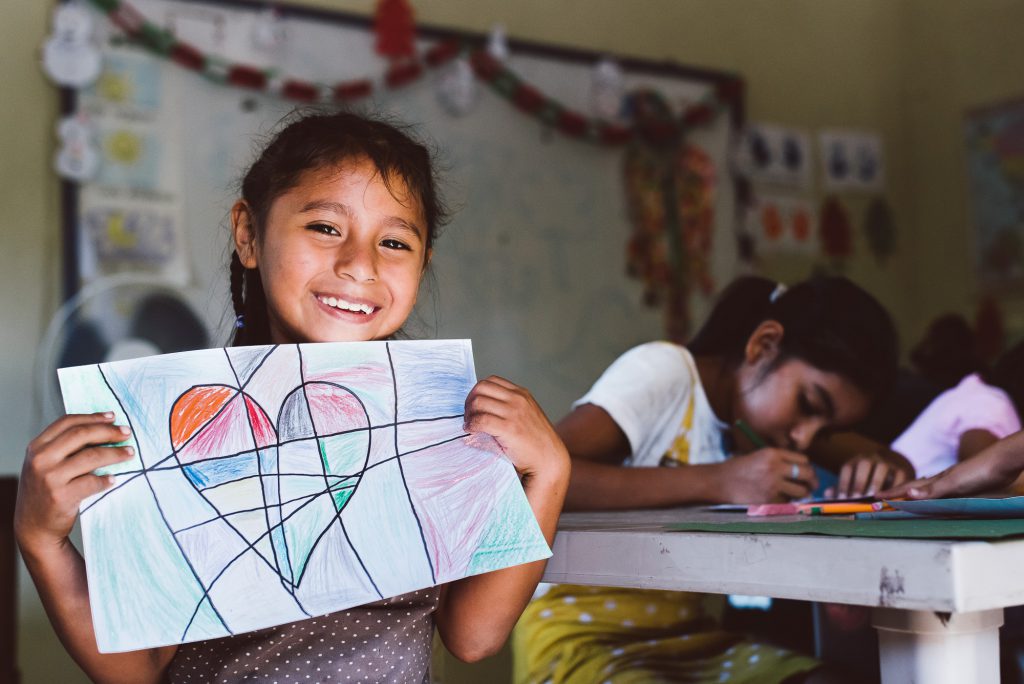
La Choza Chula (in English ‘The Cool Shack’), founded in 2012, wants to improve the quality of education, create employment opportunities and promote positive impact from tourism on the local community of El Paredón. Ben, current Communications Director, arrived having just finished his masters in Journalism to film a documentary about their work. He was meant to stay for just a few months, but his plans took a turn.
I ask Ben what the village is like: “kinda like paradise”, he tells me, “surrounded by mangroves and black sand beaches; you can see the volcanoes erupting when you’re on your surfboard, sometimes dolphins come and swim near you, there are turtle releases, all the houses are thatched – so it’s a pretty beautiful place”. El Paredón is home to a tight-knit Guatemalan community, with strict religious and cultural rules. “But”, Ben quickly adds, “it’s also a very open and welcoming community as long as you respect it”.
In such a small village, the boundaries between life and work are often non-existent: “It’s not like London where you finish your job and you can go do whatever you want”, he explains. “Here I’m not Ben, I’m always Ben from La Choza Chula”. Our conversation is interrupted more than once by a voice speaking Spanish in the background: the ‘choza’ where Ben is, has functioned simultaneously as office and house, and the community is ever-present. Whereas it appears difficult to maintain a personal life, this closeness also makes for a healthy and enriching integration in community life. Ben speaks fondly of “surfing with the locals”, and tells me about the village’s vibrant football tournament. The semi-finals were “last night in the concrete pitch in the middle of the village – everyone was there, there are food stands, and music playing – it’s a big event”.
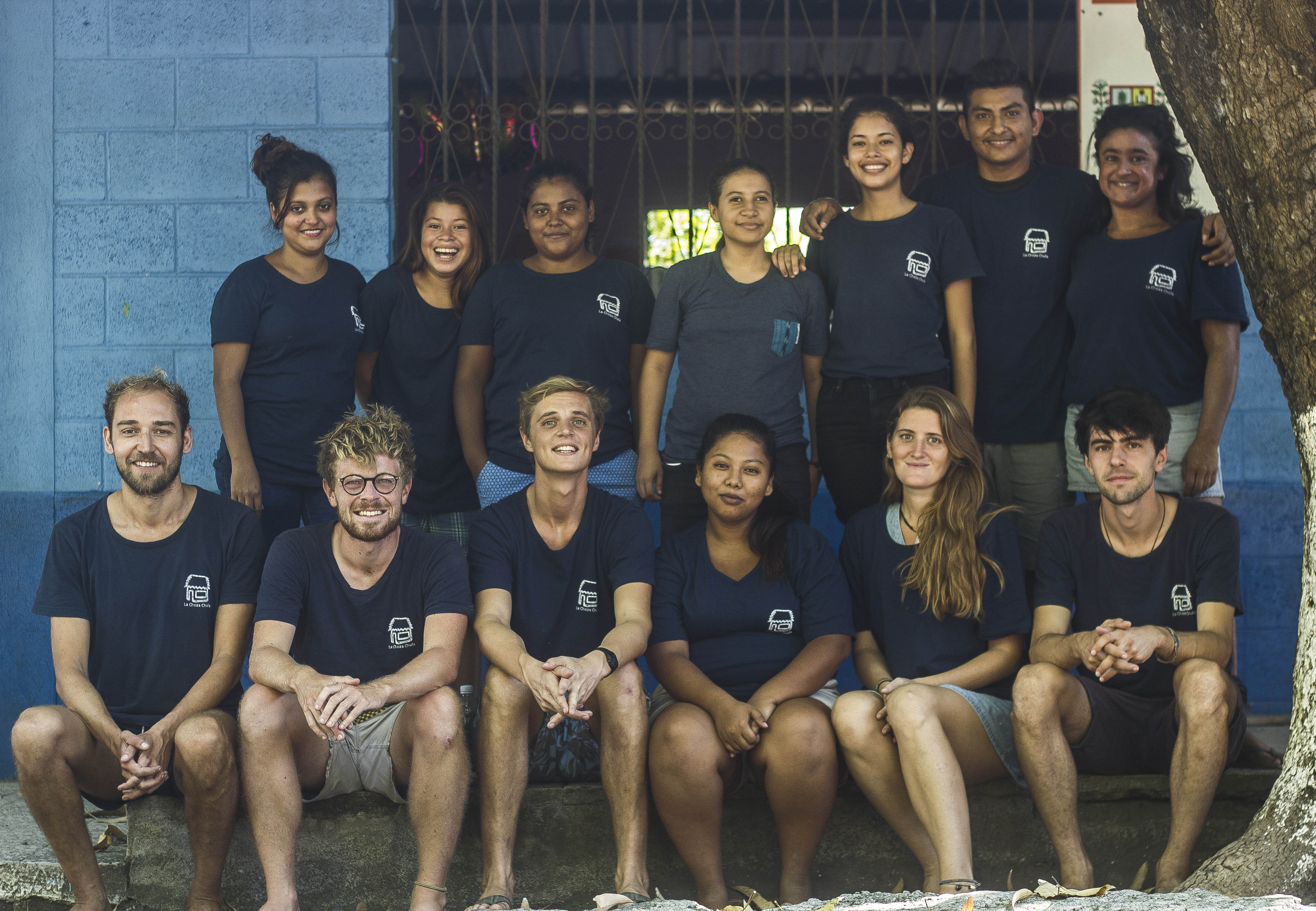
It was this closeness to the community that sparked the creation of La Choza Chula by the co-founders Julia and Carla, in 2012. Both had settled in El Paredón as English teachers at the local primary school, after a life-changing decision to leave London and travel through Latin America. It was only because “they got really involved in the community life”, Ben explains, and truly understood their “wants and needs” that their non-profit organisation was built on solid foundations.
“Guatemala has the second lowest literacy rate in the West: Ben tells me only 30% of the adult population can read and write. With its educational projects, the organisation is breaking this pattern for future generations.”
Julia and Carla could see that international tourism in the area was growing, and wanted to ensure it would positively impact the locals’ livelihood and the village economy. With this is mind, they started hiring local guides for community tours, and set up a bracelet-making workshop aimed at the local women, with the intention of selling the final products to tourists. To their surprise, no ladies showed up, but lots of children did. More and more bracelets were made, and the organisation has grown organically since. Ben explains: “Everything from that snowballed. At the start there was really never a grand masterplan, a lot of opportunities just organically appeared”.
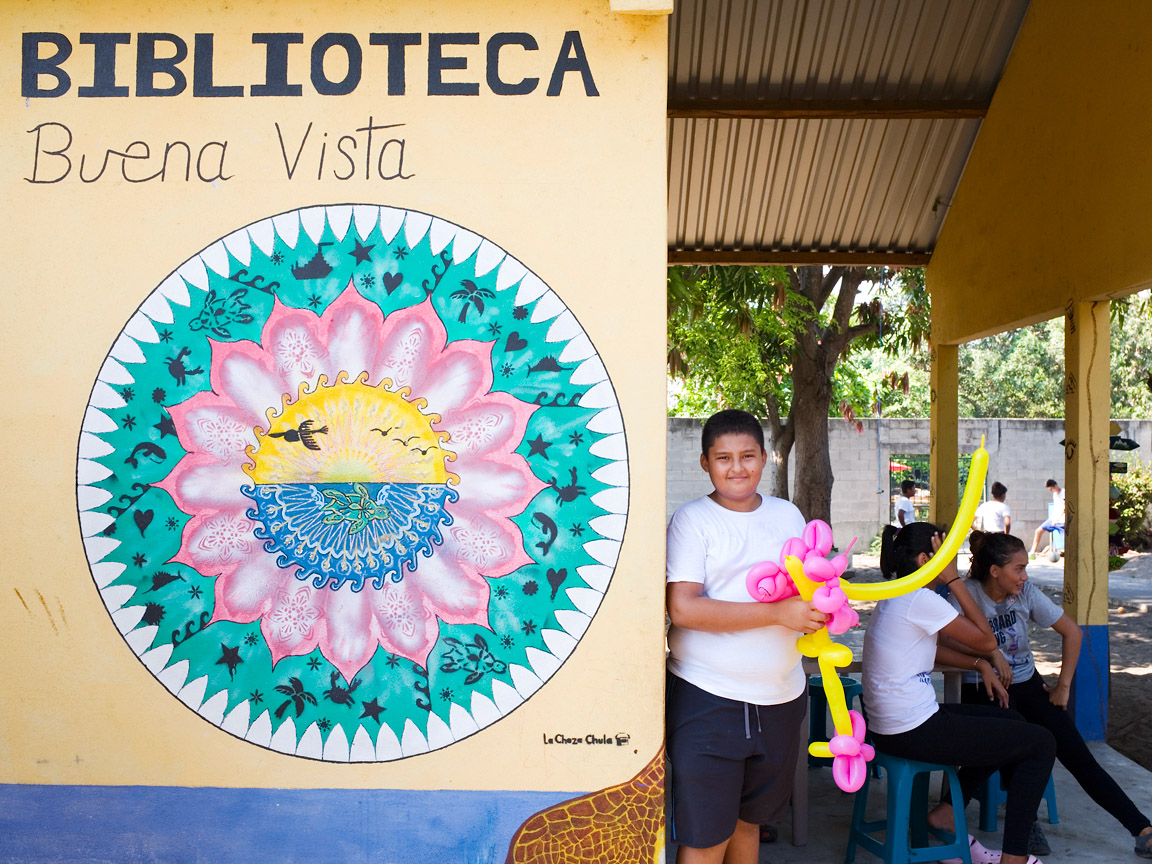
One of the key opportunities arose when an American donor took interest in Julia’s blog. Ben tells me the full story: “He fell in love with [La Choza Chula], visited, and managed to pull the funds together to build a library – something the community had wanted for ages, and had space for in the primary school grounds”. This huge first achievement set them on a track to implement various education projects in the village. Although the community had also land set aside for 25 years to build a secondary school, that hadn’t been possible due to lack of funds. Older students had no option but to study in the primary school, in classes made for young children, which inevitably hindered their learning. The organisation partnered with Surf For Life volunteers, who managed to raise the necessary funds and helped build the school. After this success, the model was reenacted to build The Ojah Computer Laboratory, giving students access to IT knowledge and doubling up as a space for teacher training in the municipality.
La Choza Chula’s job is not just ensuring the educational facilities exist: their Education Manager works alongside the school and the teachers to improve teaching methods, as well as learning environments. Guatemala has the second lowest literacy rate in the West: Ben tells me only 30% of the adult population can read and write. With its educational projects, the organisation is breaking this pattern for future generations. Working closely with Teachers2Teachers Global, they are training local teachers to implement more interactive learning, and to slowly let go of less effective traditional methods of copying and memorising.
The Buena Vista Library is also at the centre of this movement: trained local librarians work alongside the primary school in the mornings – with classes rotating to visit the library every week – and after-school hours are busy with a range of educational activities open to all. They aim to cultivate the benefits of reading, writing and learning, and are succeeding: “there’s real enthusiasm about the library”, Ben says, with between 150-200 children attending their sessions every month, out of their own willingness to learn more. They have also set up a mobile library: a librarian on a bike ensures the furthest away corners of the village still have access to books. On top of this they also supply a trained English teacher to both the primary and secondary schools.
Ben explains that their goal is to increase literacy and reduce the high number of school dropouts. Although “it’s a long-term process”, they are “definitely going in the right direction”: every year the number of students who decide to progress to secondary school is growing significantly. New and functional infrastructure, engaging teachers, access to resources and innovative learning are encouraging teenagers to stay in education.
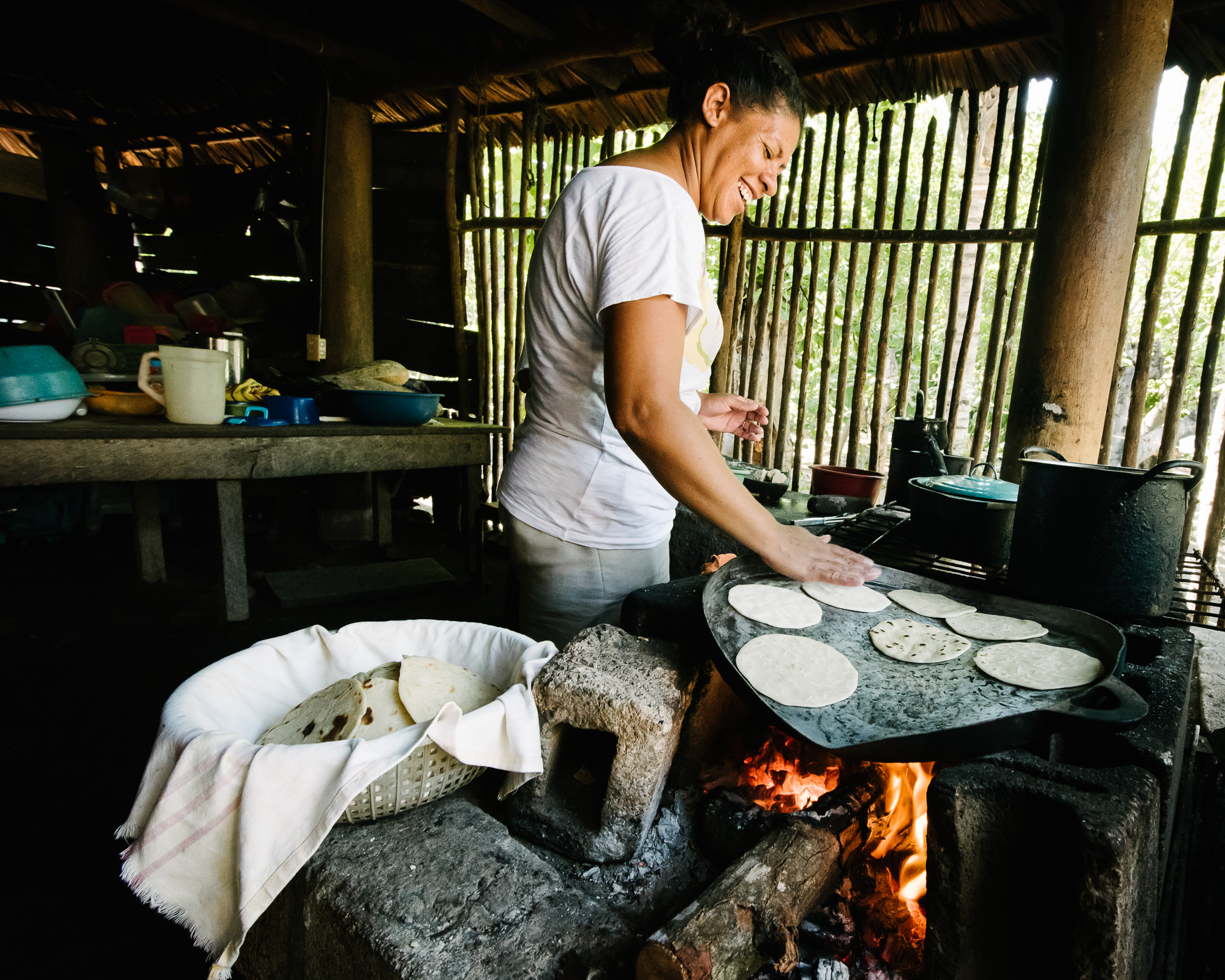
The education program is closely linked to a mission to increase environmental awareness amongst the community. The libraries educational resources are all made out of recycled materials. The newest addition to the secondary school grounds is a permaculture garden, a revolutionary agricultural technique that utilises the land sustainably, maximising biological resources and producing zero waste. Run by a student committee, the garden provides children and teenagers with hands-on learning about the environment and nutrition. Any surplus from it is sold in the community market, and raises money for the school whilst helping students gain entrepreneurial skills.
“New and functional infrastructure, engaging teachers, access to resources and innovative learning are encouraging teenagers to stay in education.”
“There is no waste disposal system in El Paredón, so all waste gets burned”, Ben tells me. Another one of La Choza Chula’s ongoing missions is to reduce the vast amount of littering that happens in the community by raising awareness about waste reduction and disposal. They have organised two “Limpiátons” this past year, big clean-ups of the beaches and mangroves that got the entire village involved. Through workshops and events, they are spreading “a better understanding of [waste disposal]”. This has reached the attention of the local leaders, who are now supporting clean-ups twice a week.
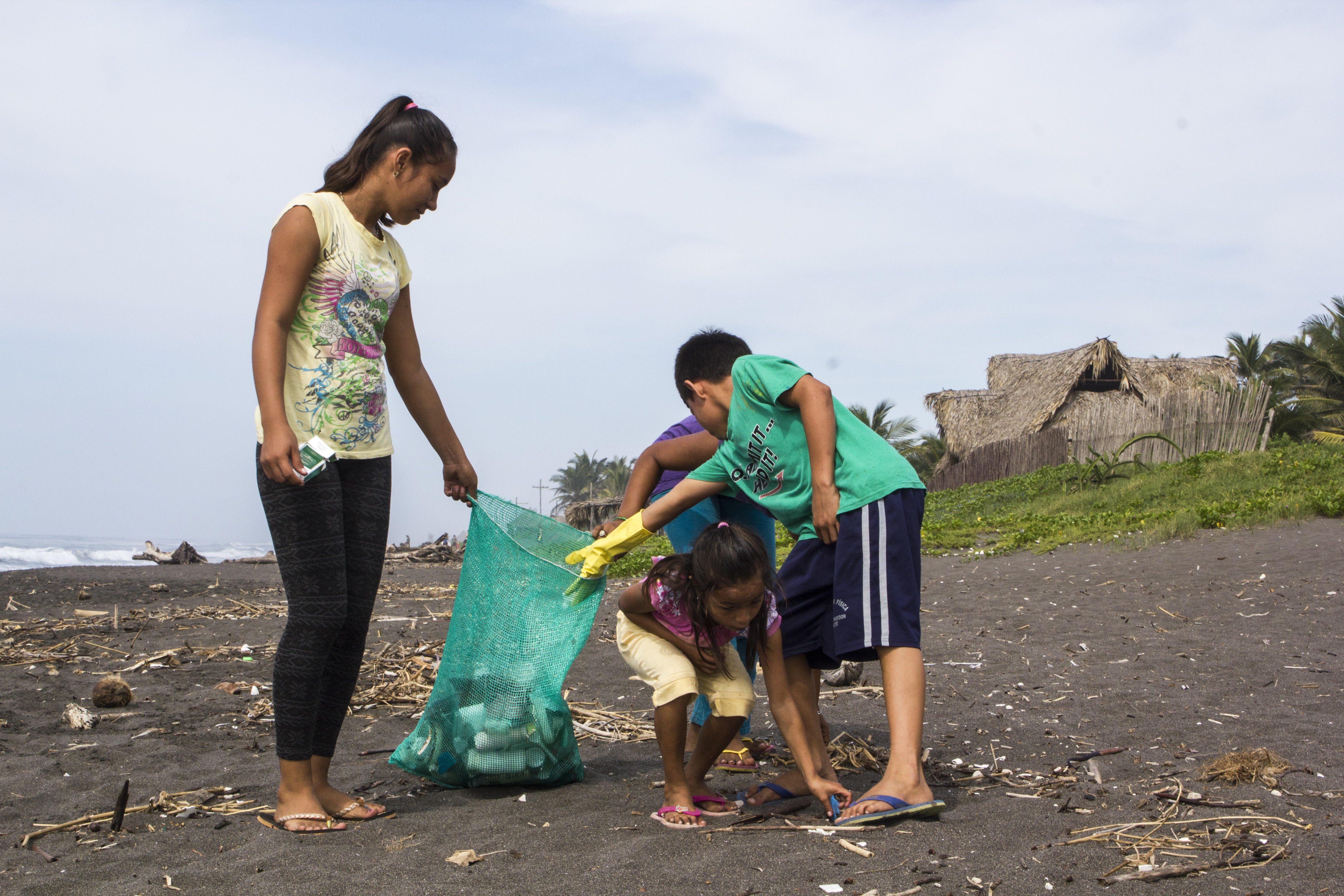
Protecting the mangroves is also at the centre of the organisation’s environmental concerns. Ben explains that “the local livelihood relies on the mangroves: lots of fish lay their eggs there to protect them from the birds, all of the wood is used to make the houses here… But with the rise of tourism they are getting deforested at a rapid rate; and mangroves take about 10 years to grow, so they are getting cut down faster than they are growing. Now it’s illegal to take mangroves without permission from local authorities, but a lot of people are bypassing that.” To raise awareness and combat this, La Choza Chulaorganised a Mangrove Month: guest speakers gave talks about their importance, and students were taken to do reforestations by planting 10,000 mangrove seeds.
La Choza Chula’s entrepreneurial projects are equally oriented towards environmental sustainability and community growth. Their ecological Chula Tours give local guides employment and a source of income, and allow tourists to experience El Paredón through the eyes and guidance of those who call it home. La Choza Chula provides free English lessons so that eventually it can equip the guides with the necessary language skills to run the tours independently. A group of guides has just finished their training to achieve their official qualification from the National Tourism Body in Guatemala, InGuat. The social enterprise is, Ben says, becoming “better and better”, offering breathtaking tours that take tourists to see the turtles swimming, , fish in the mangroves at sunset, and cook in locals’ houses. The profits then go back into the organisation and its education and environment projects.
Alongside the Chula Tours, the organisation is empowering a group of local makers through their line of Chula Products: handmade yoga mat bags, surfboard bags, bracelets and t-shirts sold to tourists. The idea that started with a volunteer surfer from San Francisco has expanded greatly: Ben tells me they have three seamstresses – Sandra, Mildred, and Angelina – who work with material made using natural threads and dies provided by a Mayan Women’s Cooperative in Lake Atitlan, La Voz de Los Tz’utujiles, and the items they make are now widely sold around the country. Sales have been rising and profit is being injected back, making La Choza Chula more and more sustainable.
“La Choza Chula’s entrepreneurial projects are equally oriented towards environmental sustainability and community growth.”
“The idea behind everything we set up is trying to increase the independence of the locals who are doing it. Our dream is that we wouldn’t have to be here; we’re trying more and more to give responsibility to the locals, hiring more and more local staff”, Ben explains. The positive impact the organisation has had on local lives is difficult to quantify. Their guides and makers, teachers and librarians have all benefited greatly from their work, and are becoming increasingly qualified and confident at their jobs. Ben tells me about their hardworking librarians, whose opportunities to access training and fair wages “opened many avenues for the future”. The emphasis on training and transferring responsibilities to the community is also reflected on their hiring of local young people as interns and volunteers: “Jonny is now my intern, I’m teaching him, and hopefully one day he’ll be able to do my job”, Ben tells me. Jonny receives a salary, free English lessons and will get a certificate at the end of his internship that can be used to apply for other jobs. It seems, however, that he might not be leaving La Choza Chula anytime soon.

The team at La Choza Chula works hard to ensure the individuals in the community are thriving. I ask Ben what the most challenging aspect of their job is and his first answer does not surprise me: “Being sustainable, bringing in money”. Then he pauses and says: “The thing that I personally find the most challenging is when you get the occasional people who, without doing any research into us, start criticising or judging our work, looking for flaws without actually coming to us and learning about what we do. If you’re a business, you never face questions like that, but as a non-profit you constantly have to justify what you’re doing. I understand it, it’s good non-profits are scrutinised, but it’s a challenge – we’re not making much money and working pretty hard and we’re still always getting questions”. As to the most rewarding aspect: “the interactions with the community”. Ben says “It’s the little things: like when you go into the library and you see a workshop running, or an art class, and everyone is there” or when a group of local children “turned up [to the football tournament] wearing our shirts to support us”.
“The idea behind everything we set up is trying to increase the independence of the locals who are doing it. Our dream is that we wouldn’t have to be here”
“What does the future hold for La Choza Chula?”, I ask. Ben tells me about their plans to take a step back and consolidate their ongoing projects before taking on new ventures. And, again, he emphasises: “We want to make it more and more locally driven. We want this building to be owned by La Choza Chula so that one day, when all of us leave, it can be a locally run project”. In the long-term, perhaps, they “can to look to expanding it out to other communities or taking the mobile library to other villages”. As with everything the organisation does, they plan to “move step by step”, according to the needs of the community and the opportunities that arise.
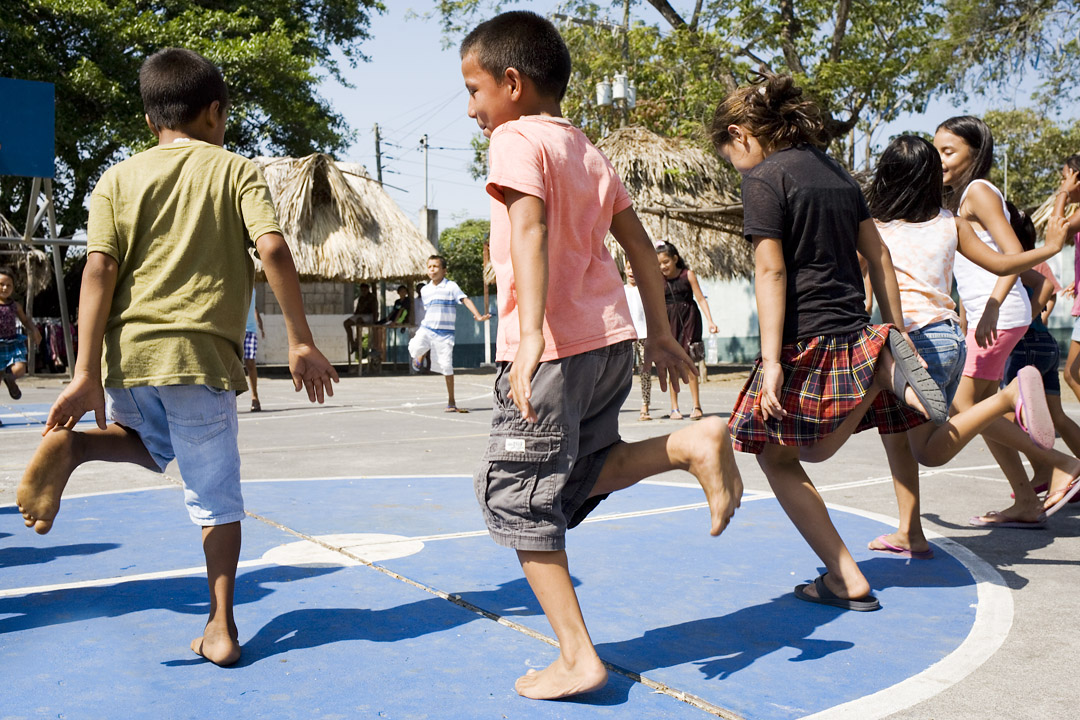
Photo credit: Ben Crisp/La Choza Chula
